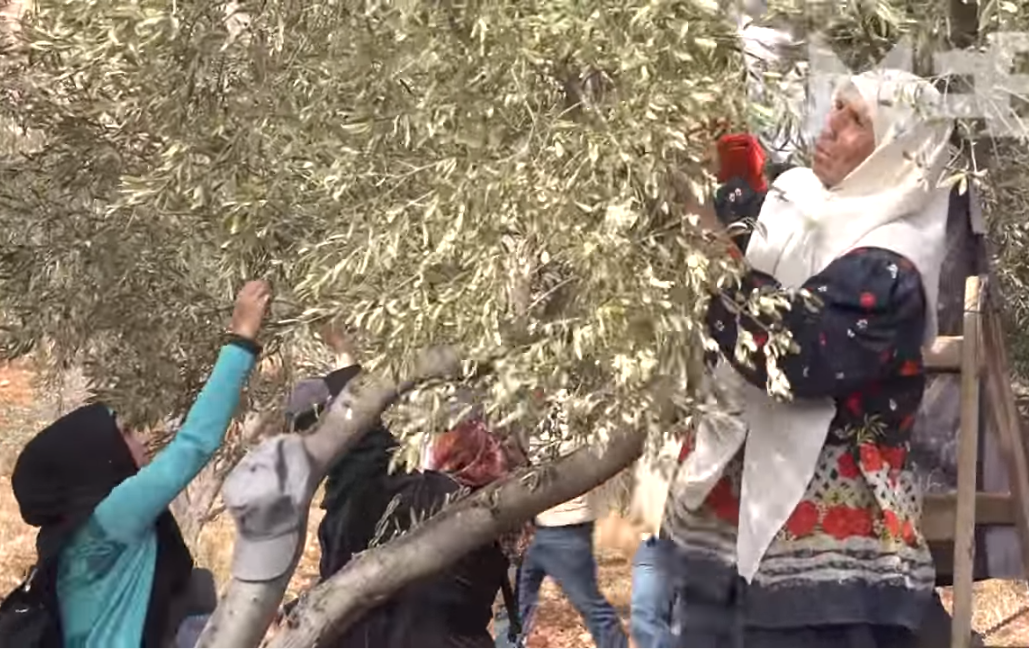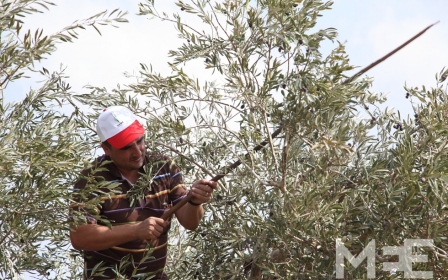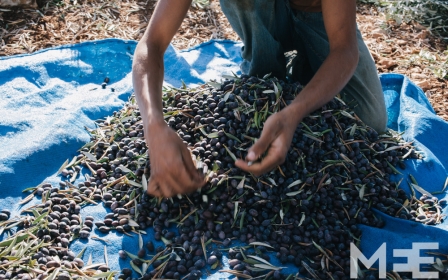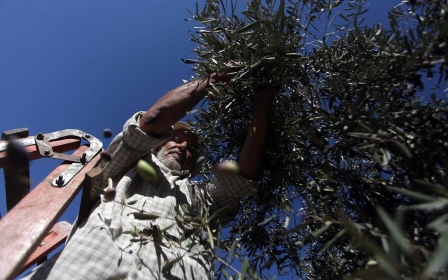VIDEO: The battle for Palestine’s olive harvest kicks off in the West Bank

DOUMA, West Bank - The annual olive harvest is a key economic, social and cultural event for Palestinians. The olive harvest happens every autumn and runs from October to December.
Palestinians face many challenges and find that their access to land, water and markets are often heavily limited by Israeli settlements, checkpoints and restrictions that pop up throughout much of the West Bank.
Yet, in spite of all these challenges farmers come out to harvest their olives year after year. Olive farming is a key source of income in Palestine, and an area that is believed to hold vast economic promise.
According to the UN’s Office for the Coordination of Humanitarian Affairs (OCHA), olive production makes up 25 percent of the West Bank economy and provides jobs to more than 150,000 people in Gaza and the West Bank.
In rural areas, more than half of all families derive their income from agriculture with olives accounting for at least 70 percent of annual income, according to Lamis Zamzam, a spokesperson for the Canaan Fair Trade organisation that encourages farming cooperatives in Palestine.
“Yearly, 30,000 tonnes of olives are harvested in the Occupied Palestinian Territories, of which roughly two-thirds are exported,” said Fuad Abu Seif, the Acting General Director of the Union of Agricultural work Committees (UAWC), in a recent statement.
However, every year, settler violence poses a serious challenge for Palestinian farmers. Olive trees are routinely damaged, uprooted, poisoned, burnt down, or even harvested by settlers. An estimated $12.3m is lost in income each year by this damage according to OCHA.
In order to limit this damage, Palestinian university students and international volunteers work with the farmers to complete the harvest faster, and try to increase the security on the farms to avoid damage to the olive groves.
This year, students from al-Quds University came in droves to help olive picking in the village of Douma.
“I came today to help the farmers to pick the olives from the trees, and also to support the Dawabsheh family, whose house they burnt and killed the family [last July],” Haya, an al-Quds University student, said in reference to a Palestinian family who had their house burnt by settlers. The family's toddler, 18-month-old Ali, died during the blaze, while his father, Saad, and mother, Riham, died later of their wounds.
Haya, who did not want to give her last name, told MEE that many other students felt that volunteering was an act of symbolic resistance to settler attacks, and the on-going Israeli military occupation of the West Bank.
New MEE newsletter: Jerusalem Dispatch
Sign up to get the latest insights and analysis on Israel-Palestine, alongside Turkey Unpacked and other MEE newsletters
Middle East Eye delivers independent and unrivalled coverage and analysis of the Middle East, North Africa and beyond. To learn more about republishing this content and the associated fees, please fill out this form. More about MEE can be found here.




